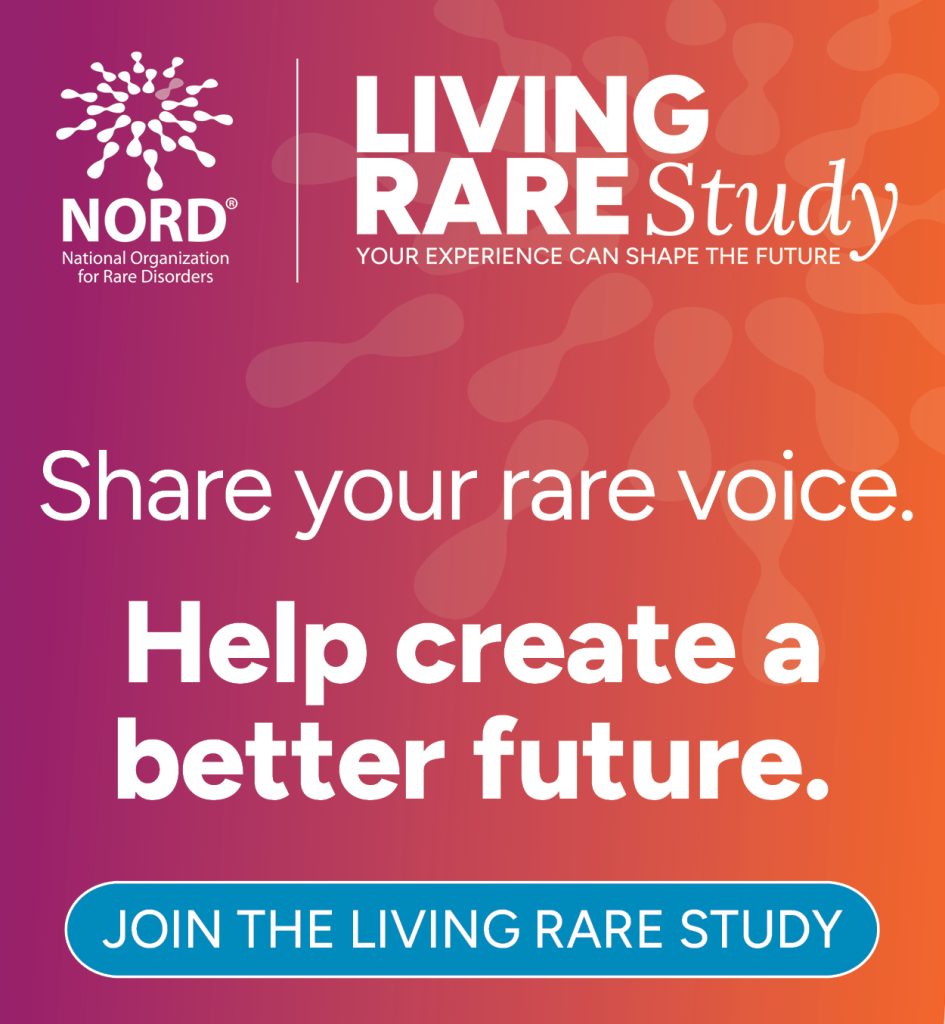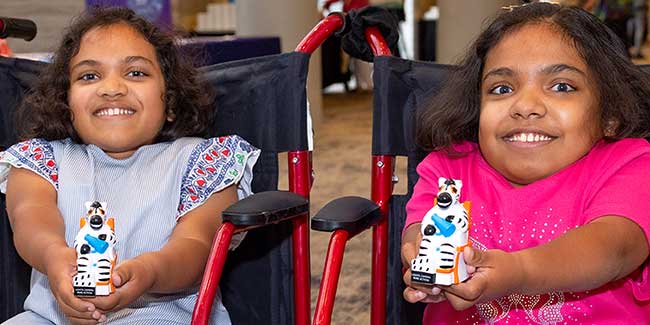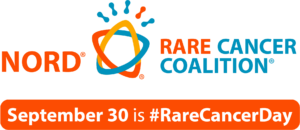
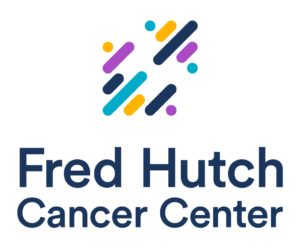
By Susanna Ray
It took doctors several years to figure out what was wrong with Karman Kahambwe. And no wonder: the Congolese-American teenager living in Eastern Washington had a rare cancer typically seen in elderly Italian men.
Once Kahambwe was diagnosed with Kaposi sarcoma and treatment began, he faced another challenge almost as difficult.
“Alienation is the word that comes to mind,” says Kahambwe, now 20 years old and working for a realtors association in West Richland, Washington. “Even amongst a group of children at school that all had some sort of medical issue, when we’d all be in the nurse’s office with a flare-up, I was still an outcast. With a rare sickness that you don’t understand, that peers don’t understand, that doctors and parents and family don’t understand, it just makes you feel even more alienated and alone.”
That isolation is one of the things Dr. Taran Gujral aims to resolve for patients and scientists alike with his new Transformative Rare Cancer (TRACER) initiative at Fred Hutch Cancer Center in Seattle — an independent organization that also serves as the cancer program for UW Medicine, a NORD Rare Disease Center of Excellence. Gujral is counting on the power of the pack to draw attention to, and funding for, rare cancers. His initiative is gathering siloed researchers from around the country and providing a forum to share support and expertise. It also offers seed funding to help smaller labs develop models and generate data and an AI-powered drug matching platform to repurpose medications that are approved for more common cancers and have potential for treating others.
“We need to come together and address these challenges that only the rare cancer community faces,” Gujral says. “TRACER brings us all together under one umbrella, and now we’re part of a team, with more resources to address these needs.”
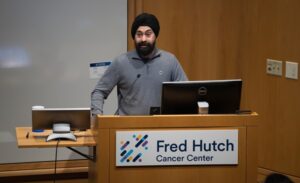
The National Cancer Institute defines a rare cancer as one that affects fewer than 40,000 people a year in the U.S. In fact, out of about 200 different types of known cancers, only about a dozen are considered common. And specific types of rare cancer might only be diagnosed in a few people each year.
But as a group, rare cancers make up more than a quarter of all cancer diagnoses, the institute estimated in 2019. So with cases expected to top 2 million in 2024, rare cancers could collectively affect more than 500,000 Americans this year.
That leaves a great deal of cancers “vastly understudied,” Gujral says. And that makes it hard for patients, who often don’t know the unusual signs in time to seek help; for doctors, who can struggle to find the right diagnosis and treatment; and for scientists, who may not have enough data to attract research grants that tend to be awarded where they can have the biggest impact.
“We’re doing a good job of decreasing death rates among patients with common cancers, but some with rare cancers are neglected, and overall it’s a huge population,” Gujral says. “If we work together as a team, instead of in silos, we can work to understand these cancers — what are the key driving factors, genes, mutations — and then explore possible solutions and ways to target them that may already exist in the academic and industry spaces.”
Gujral studied life sciences and math at Queen’s University in Ontario as he began a career with the Canadian military, following in the footsteps of his father and grandfather. The first lab he worked in as an undergraduate student was researching rare forms of thyroid cancer. One day it dawned on him that his military job of analyzing radio signaling data from various networks in Asia was surprisingly similar to his lab work, where he analyzed cells to understand why they reacted in certain ways and predict what they might do next.
A professor convinced him to switch tracks, and now Gujral has been studying rare cancers for more than two decades. As a PhD student, he could focus exclusively on research. But once he began running his own lab at Fred Hutch, he realized how difficult it is to get funding to study the unusual diseases that held his attention.
The collaborative nature of the Seattle cancer community showed him the benefits of joining forces, as he worked with local surgeons to get fresh samples of rare tumors to study.
“I realized that if I’d had more support earlier, my work could have been done in a much more accelerated way,” Gujral says, “so why not come together and help others facing the same challenges?”
The cause is starting to get more attention. The U.S. government established the Rare Cancers Research Program in 2020 and has been steadily increasing support, earmarking $17.5 million for the effort this year. Starting last year, Congress designated Sept. 30 as Rare Cancer Day. And the U.S. Food and Drug Administration (FDA) awarded Gujral a five-year, $2.5 million grant to help develop his drug-matching platform for ultra-rare cancers.
“The momentum behind rare cancers is becoming incredibly strong, which is what we’ve needed,” says John Hopper, co-founder and co-chair of the Rare Cancer Coalition at the National Organization for Rare Disorders, and a member of TRACER’s advisory board. “TRACER is a great example of where this is all going and the promise it holds. It’s a huge step no one else has taken yet.”
Awareness is the catalyst for change and progress, says Christine O’Connell, whose daughter, Jane, was diagnosed with stage IV kidney cancer in 2017, when she was 3 years old. It was a fast-growing cancer that had spread to Jane’s lymph nodes, lungs and spine by the time it was discovered. While her treatment was considered successful, the 11-year-old is now at risk of secondary cancers and heart damage.
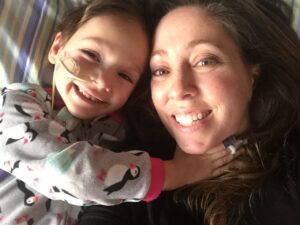
O’Connell had always thought research for children’s diseases was well funded — “Those angelic faces with bald heads that you see in the ads, how could you not want to help them?” she says — so she was shocked to discover that the lion’s share of money goes to common cancers in adults instead.
Since all pediatric cancers are considered rare because of the low numbers of diagnoses, “there just aren’t enough sick kids for pharmaceutical companies to recoup the investment in chemotherapy or drugs specifically for children,” she says. “That was a huge eye opener.”
O’Connell began fundraising five years ago and has raised a million dollars for research into immunotherapy for childhood cancers.
The community that has sustained O’Connell and her family was created by “luck and happenstance” through a Facebook group and serendipitous meetings, she says. So TRACER’s mission to intentionally foster alliances and networking opportunities “is definitely fulfilling a need,” she says.
With rare cancers, “there’s not enough money to be redundant,” O’Connell says, making collaboration the key. “If there’s a breakthrough and they’re telling somebody about it, and if there’s a risk and they’re sharing it right away, as a fundraiser that’s something I applaud.”
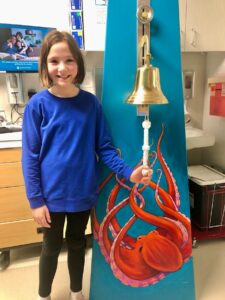
Gujral is organizing his second TRACER forum this year — “like a breast cancer symposium,” he says, “except it’s about all different types of rare cancers” — to give scientists and researchers facing similar challenges a platform to interact and to learn from and support each other. They also present their work to each other at the events and learn from experts in the industry and the FDA, to address the challenges of clinical trials with small patient populations, for example.
After the first symposium in March, two labs that had participated went on to write grants together, Gujral says, even though they work on different rare cancers. He hopes researchers and oncologists will continue joining forces to help each other solve problems, perhaps by sharing expertise, such as if one lab excels at genetic screening and another at drug screening.
Through TRACER, Fred Hutch is also providing resources to some small labs that have samples of rare cancers but not enough funding to develop a model to generate data and a solid hypothesis that can be tested.
And TRACER’s drug matching platform promises to shave decades off the time it takes to provide treatment to patients with rare cancers. It combines genomic testing of rare tumor biopsies and screening against more than 200 drugs that have already gone through safety trials and are approved for treatment of common cancers, to identify medications that have the potential to be repurposed.
“No single institution will invest a billion dollars to develop a drug for a very small population, but there are other possibilities that can be explored,” Gujral says. “When you develop a new drug, you’ll be helping patients 10 or 15 years down the line. But we’re hoping to help patients who currently face this disease, because there could be an approved drug sitting there that could help with this.”
To this day, Kahambwe says, he doesn’t know anyone else who’s had Kaposi sarcoma. In one sense, he wishes all cancers were that rare. But he also longs for a sense of community.
“If people knew what was going on with these rare cancers and rare illnesses, they’d be just as dedicated to researching and eradicating them as they are with the commonly known ones,” Kahambwe says. “I strongly believe that with where people’s hearts and minds are in today’s day and age, with just a little bit of information, research would be bountiful in cases that are rare.”
That’s the point, Hopper says — to educate, build awareness and activate more groups to provide funding for research, “so we can get correct diagnoses and treatments and better outcomes.”
Get Involved
Learn more about Fred Hutch Cancer Center here.
Learn more about the TRACER Transformative Rare Cancer Initiative here.
Learn more about the NORD Rare Cancer Coalition here.
Learn more about Rare Cancer Day here and download resources to share with your community.


